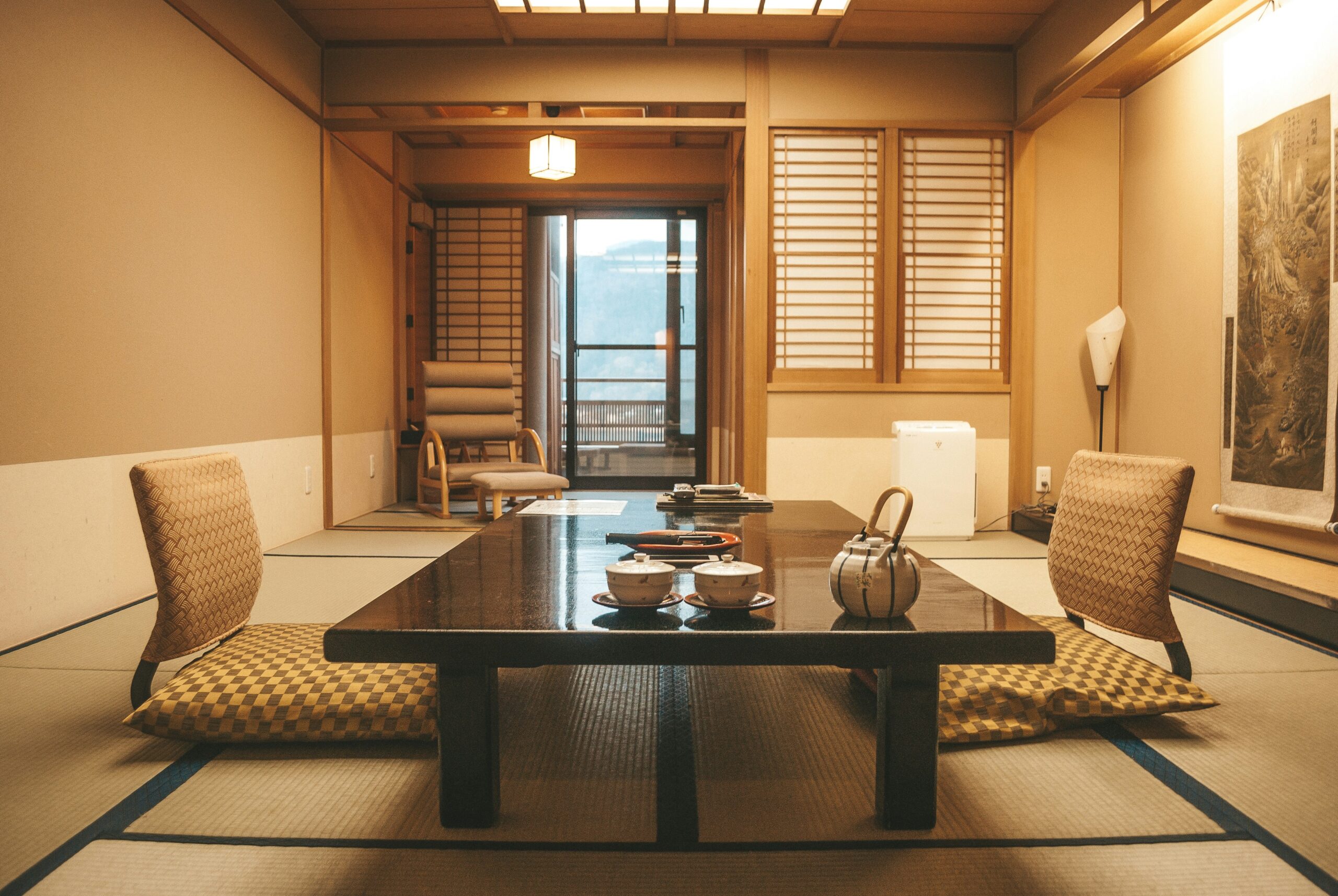In recent years, Japan has become synonymous with the minimalist movement, a trend that strips back the unnecessary, focusing on the essential to create a serene, clutter-free environment. This revolution, deeply rooted in traditional Japanese culture and philosophy, has made its way into homes, fashion, cuisine, and even technology, influencing individuals and industries worldwide. As we delve into Japan’s minimalist revolution, we uncover the historic and cultural underpinnings of this lifestyle and explore its contemporary manifestations and global impact.
1. Japan’s Journey into Minimalism: An Overview
Japan’s minimalist journey is not a modern phenomenon but a historical evolution influenced by its culture, religion, and philosophy. The post-World War II era, with its emphasis on rebuilding and simplification, marked a significant period when minimalism began to take a more defined shape in Japanese life. This movement towards minimalism was not just a reaction to scarcity but a deliberate choice towards a more focused and purposeful way of living. Over the decades, Japanese minimalism has transcended borders, influencing design, architecture, and lifestyle choices around the globe. Its appeal lies in the tranquility and freedom it offers, a stark contrast to the chaos and clutter of modern living.
2. The Zen Influence: Roots of Japanese Simplicity
At the heart of Japanese minimalism lies the influence of Zen Buddhism, which emphasizes simplicity, mindfulness, and the beauty of impermanence. Zen principles advocate for a life of less clutter and more space for contemplation and appreciation of the moment. This philosophy has permeated various aspects of Japanese culture, from the design of traditional tea houses to the practices of meditation and ikebana (flower arranging), teaching the value of simplicity and the importance of doing more with less. The Zen influence has made minimalism not just a design aesthetic but a way of life that seeks to eliminate the unnecessary distractions and focus on the essence of living.
3. Decluttering the Japanese Way: Marie Kondo’s Impact
Marie Kondo’s "KonMari" method has taken the world by storm, transforming the act of decluttering from a mundane chore to a life-changing philosophy. Kondo’s simple yet profound question, "Does it spark joy?" has prompted millions to reevaluate their possessions and their relationship with material goods. Her approach goes beyond mere tidying; it’s about mindfulness, appreciation, and the intentional curating of one’s space. The global success of her books and Netflix series signifies a universal desire for simplicity and the profound impact that decluttering can have on one’s life and well-being.
4. Tiny Homes, Big Dreams: The Minimalist Housing Trend
In Japan’s densely populated cities, where space is a luxury, the tiny home movement has flourished as a testament to the minimalist lifestyle. These compact living spaces, ingeniously designed to maximize utility and comfort, embody the minimalist principle of "less is more." Beyond their practicality in urban settings, tiny homes represent a conscious choice towards simplicity, sustainability, and freedom from the burdens of excessive possessions. This trend challenges traditional notions of success and happiness tied to the size of one’s dwelling, promoting a lifestyle that values experiences over material wealth.
5. Minimalist Fashion in Japan: More Than Just a Style
Japanese minimalist fashion, characterized by clean lines, neutral colors, and high-quality materials, reflects a conscious departure from the fast fashion cycle. Brands like Muji and Uniqlo have championed this aesthetic, focusing on functionality, comfort, and timeless design. This approach to fashion is not merely about appearance but a reflection of values that prioritize sustainability, quality over quantity, and a rejection of the disposable culture. Minimalist fashion in Japan encourages individuals to curate a personal style that transcends seasonal trends, fostering a deeper connection with what we wear.
6. From Ikebana to Interiors: Aesthetic of Less
The traditional art of ikebana, with its emphasis on harmony, proportion, and the delicate balance between nature and human craftsmanship, encapsulates the Japanese minimalist aesthetic. This aesthetic of less extends to interior design, where spaces are carefully curated to embody tranquility and functionality. The use of natural materials, subdued colors, and the thoughtful arrangement of furniture and objects creates an environment that is both aesthetically pleasing and spiritually calming. It’s a testament to the belief that beauty and clarity can be achieved not by adding, but by subtracting.
7. The Wabi-Sabi Philosophy: Embracing Imperfection
Wabi-sabi, the appreciation of the beauty in imperfection and transience, is a concept deeply ingrained in Japanese culture and an integral part of its minimalist tradition. This philosophy teaches the acceptance and celebration of flaws, believing that they contribute to the unique beauty and character of an object or space. In a world obsessed with perfection and permanence, wabi-sabi offers a refreshing perspective that finds depth in simplicity and serenity in the natural cycle of growth and decay. It’s a reminder that in imperfection, there’s beauty to be embraced and lessons to be learned.
8. Muji and Uniqlo: Pioneers of Minimalist Retail
Muji and Uniqlo have become global ambassadors of Japanese minimalism, embodying its principles in their products and store designs. Muji, known for its "no-brand" philosophy, focuses on simplicity, quality, and sustainability, offering products that are designed to enhance life rather than dictate it. Uniqlo, on the other hand, has mastered the art of "simple made better," providing functional, stylish clothing that complements a minimalist lifestyle. Both brands have challenged the conventional retail experience, proving that simplicity and mindfulness can be powerful selling points in a crowded market.
9. Simplifying Cuisine: Japanese Food’s Minimalist Turn
Japanese cuisine, with its emphasis on seasonal ingredients, presentation, and balance, naturally embodies minimalist principles. This culinary tradition values the quality of ingredients over quantity or complexity, allowing the natural flavors to shine through. The minimalist approach to Japanese food is not just about aesthetics but a reflection of a deeper cultural appreciation for nature and the seasons. By focusing on simplicity and purity, Japanese cuisine offers a culinary experience that is both enriching and enlightening, reminding us of the profound connection between food, culture, and the environment.
10. The Digital Detox: Japan’s Tech Minimalism
In an age dominated by digital overload, Japan’s minimalist ethos has extended to technology, with a growing movement towards digital detoxing and mindful tech use. This approach advocates for a balanced relationship with technology, where devices serve to enhance rather than detract from the quality of life. Japanese tech minimalism is about creating spaces and routines that prioritize human interaction, creativity, and mental well-being, offering a counter-narrative to the incessant demand for connectivity and consumption that defines the digital age.
11. Japanese Minimalism Abroad: Influencing Global Trends
Japanese minimalism has transcended its geographical origins to influence global trends in design, lifestyle, and thought. From the decluttered spaces of Scandinavian homes to the sleek lines of modern architecture, the impact of Japanese minimalism is evident across cultures. Its principles of simplicity, mindfulness, and sustainability resonate with a global audience seeking solace in a chaotic world. As more people embrace these values, Japanese minimalism continues to shape dialogues and practices around conscious living and design worldwide.
12. Beyond the Fad: The Future of Minimalism in Japan
As we look to the future, Japanese minimalism stands at a crossroads. While it has gained international acclaim, the challenge lies in ensuring that it remains a meaningful practice rather than a superficial trend. The principles of minimalism, deeply rooted in Japanese culture, offer pathways to a more sustainable, mindful, and fulfilling way of life. By continuing to innovate and adapt, Japanese minimalism can lead the way in redefining success, beauty, and well-being for future generations, both within Japan and beyond.
The Japanese minimalist revolution, with its deep cultural and philosophical roots, offers a compelling blueprint for a more sustainable, meaningful, and serene way of life. As this movement continues to inspire individuals and communities around the globe, it reminds us of the power of simplicity to transform our spaces, our relationships, and our selves. In embracing minimalism, we find not only a path to declutter our environments but also an opportunity to rediscover the beauty and richness of life in its most elemental forms.








